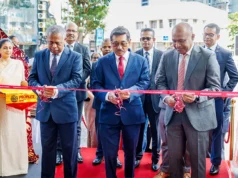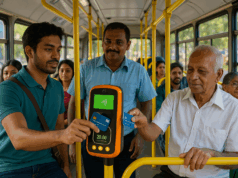Sri Lanka Customs has recorded an exceptional revenue performance this year, collecting Rs. 1,227 billion by 1 August 2025, with July marking the highest-ever monthly income in its history. Customs spokesperson Seevali Arukgoda stated that Rs. 231 billion was collected in July alone—a record-breaking figure never achieved in a single month before.
The annual revenue target for 2025 stands at Rs. 2,115 billion, and by the end of July, Customs had already exceeded expectations by Rs. 116 billion. Arukgoda said they are confident of easily surpassing the yearly target due to the department’s strategic planning and consistent performance despite economic challenges. A key contributor to the revenue surge has been motor vehicle imports, which have generated over Rs. 300 billion so far this year.
In July alone, more than 28,000 vehicles were imported. While other imports have also increased, vehicles remain the dominant source of revenue. Meanwhile, a Customs investigation is ongoing into ten “BYD” vehicles currently held at the port over suspected underpayment of duties. One vehicle has already been re-exported due to documentation issues, and further action will be taken if other violations are found.
Arukgoda warned that any attempt to mislead Customs or avoid taxes could result in confiscation and fines up to three times the value of the goods. He also stressed that Sri Lanka Customs applies duties equally to all, using the international HS classification system to avoid any bias or irregularities. The department operates under a five-year strategic plan launched in 2024, which Arukgoda said has enabled Customs to remain ahead of its targets.
Addressing concerns about port delays, he explained that clearance times can vary depending on vessel arrival patterns and the complexity of documentation. The process of clearing motor vehicles is particularly time-consuming due to checks on value, age, import documents, and tax compliance.
He emphasised that delays often stem from other institutions involved in the process, and not solely from Customs. Ensuring faster clearance, he noted, requires close coordination between all agencies and importers.








